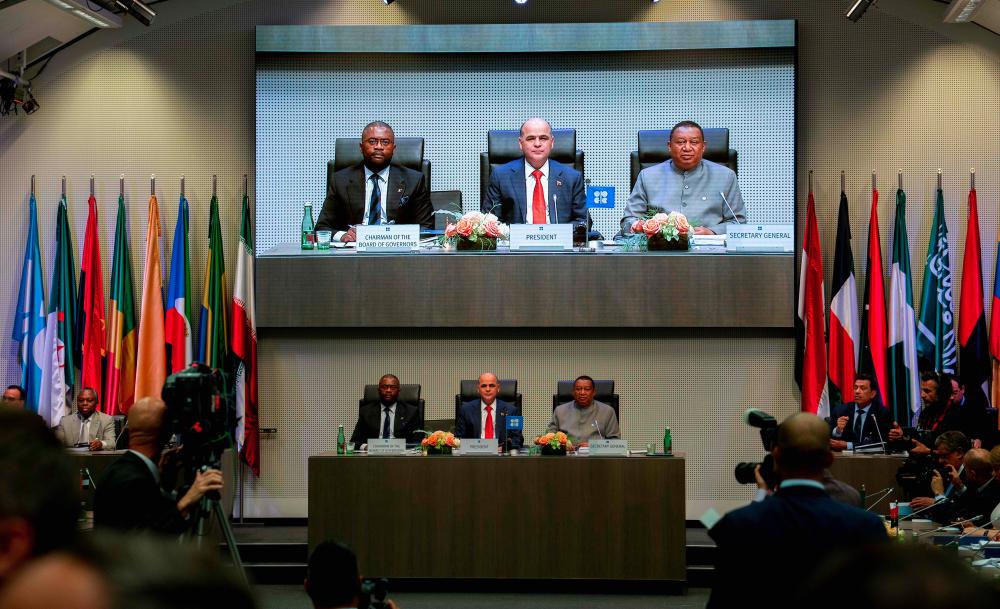KUALA LUMPUR: Malaysia supports the proposal for the Declaration of Cooperation (DoC) to be extended by nine months to March 31, 2020, at the current agreed production levels to ensure the smooth continuation of the current cooperation.
Minister of Economic Affairs, Datuk Seri Mohamed Azmin Ali said, despite being a non-member of Organization of the Petroleum Exporting Countries (OPEC) and a small oil-producing country, Malaysia, would stand together in solidarity with the oil-producing countries, in continuing the global market stability agenda, which would benefit producing and consuming countries alike.
The country also fully appreciates the initiatives taken by the OPEC Secretariat that has worked diligently to finalise the ‘Charter of Cooperation between Oil Producing Countries’ (CoC), taking into account the feedback and views from all participating countries, including Malaysia.
“The CoC, which was adopted by the participating countries today, will further institutionalise the framework for regular and lasting cooperation,” he said in a statement here today, at the end of the 6th OPEC and non-OPEC Ministerial Meeting held in Vienna, Austria.
The Malaysian delegation, comprising senior officials from the Ministry of Economic Affairs, Attorney-General’s Chambers, Petroliam Nasional Bhd (Petronas) and the Malaysian ambassador to the Republic of Austria and the country’s Permanent Representative to the United Nations in Vienna.
In the meeting, Malaysia reiterated the principles of CoC, which is on a voluntary basis without legally binding rights or obligations and does not affect member countries’ sovereignty.
“Nevertheless, its adoption is important to ensure continued cooperation and collaboration between OPEC and non-OPEC members. In this regard, Malaysia suggests that apart from managing the total oil production, the CoC must also achieve its higher objective of ensuring global oil market stability.”
Malaysia views this document as a key instrument to facilitate OPEC and non-OPEC members in facing the challenges of the global market and that its adoption, will provide the platform to rebalance the market and protect the interests of producers, consumers and investors, said Azmin.
He said Malaysia also pointed out that the rising challenges in the global oil market today continue to be driven by a host of factors including the slowdown in global economic growth, as well as increasing geopolitical tension.
These would adversely impact smaller developing economies, he added.
The 6th OPEC and non-OPEC Ministerial Meeting also decided Austria’s capital, Vienna will play host to the next meeting later this year in December 2019. - Bernama














